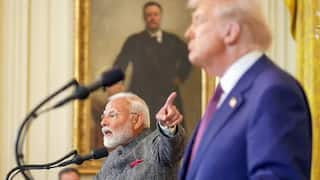CCPA Guidelines: Hotels, Restaurants Barred From Levying Service Charge Automatically To Food Bills
Consumers can also lodge a complaint on the National Consumer Helpline, which works as an alternate dispute redressal mechanism at the pre-litigation level, by calling 1915 or through the NCH app

From now, restaurants and hotels can’t compel customers to pay service charges, the PTI reported.
The Central Consumer Protection Authority (CCPA) on Monday barred hotels and restaurants from levying service charge automatically or by default in food bills. It has also allowed customers to file complaints with CCPA in case of violation. According to the report, service charge will be a voluntary option at customers’ discretion.
The CCPA has issued guidelines for preventing unfair trade practices and violation of consumer rights with regard to levying of service charge amid rising complaints.
According to the guidelines, “No hotels or restaurants shall add service charge automatically or by default in the bill.” There should not be any collection of service charge by any other name, the CCPA said, while adding, “No restriction on entry or provision of services based on collection of service charge shall be imposed on consumers.”
Moreover service charge cannot be collected by adding it along with the food bill and levying GST on the total amount. If any consumer finds that a hotel or restaurant is levying service charge in violation of the guidelines then he or she can request the concerned establishment to remove it from the bill amount.
The consumers can also lodge a complaint on the National Consumer Helpline (NCH), which works as an alternate dispute redressal mechanism at the pre-litigation level, by calling 1915 or through the NCH mobile app, while they can also file complaints with the Consumer Commission.
Earlier, the Department of Consumer Affairs (DoCA) said that it would soon develop a strong framework to enforce strict compliance by the stakeholders with regard to the service charge imposed by restaurants and hotels as it negatively impacts customers on a regularly.





































